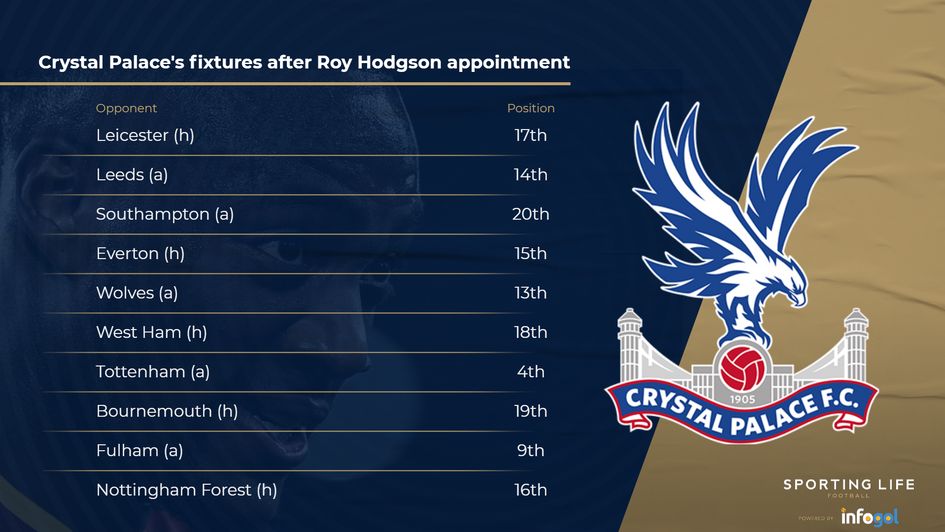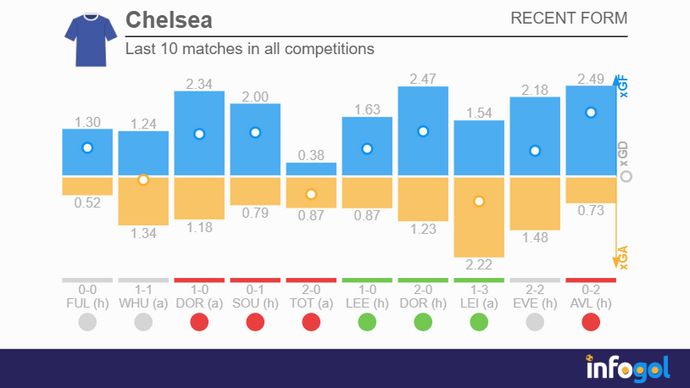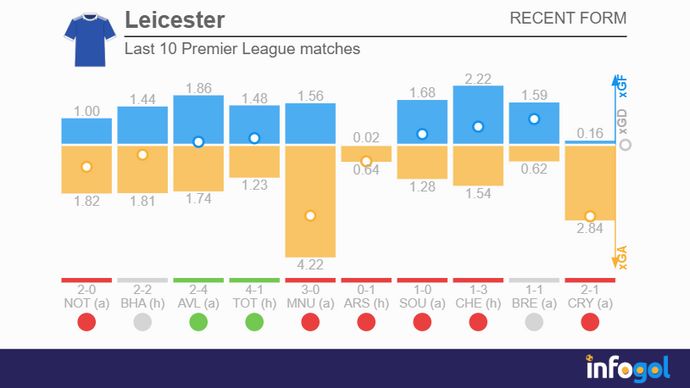Thirteen managerial changes during this 2022/23 Premier League season. 13.
It's an incredible amount for one campaign, showcasing the sheer desperation of the many teams involved in the relegation fight this term, but it is one of the few levers a club can pull to make a difference.
There are many ways to lose and gain a job in football management, as evidenced by this wild season alone.
Clubs such as Bournemouth, Aston Villa, Everton, Leeds and Southampton have had relatively easy decisions to make this season, showing managers whose teams have performed poorly in bad results the door.
Timing matters a little less in these cases, especially when done earlier in the campaign and with significant fan unrest to consider.
One of the openings filled this season was not like any other, however, and is extremely rare in this day and age.
Graham Potter was allowed to leave Brighton for Chelsea in early September, allowing Roberto De Zerbi to take over a team in an outstanding position, both on and off the pitch. That's very unusual during the season, so the fact De Zerbi has improved the Seagulls further is a massive compliment.
It is the timing of changes that is perhaps most interesting, though.
Of course, if it needs to be done, early summer is the sweet spot to make a managerial change, giving the person put in charge the requisite time to implement their ideas and use the transfer window to their advantage.
Alas, we're talking about in-season switches, which makes timing all the more important.

An international break is the prudent moment to change boss during the campaign, a pause of play that has been utilised on multiple occasions.
Fixtures surely played a part in the decision making process of Crystal Palace, too, who let Patrick Vieira go and replaced him with the man who he replaced — Roy Hodgson.
Palace's decline was clear for all to see, failing to test opponents as they dropped into the relegation battle, but they allowed Vieira to continue to take charge of games against Manchester City, Brighton and Arsenal before the small break.
Zero points was maybe expected from that run, allowing the hierarchy to make a change with little resistance.

Whether Hodgson was the right man remains to be seen, but he was certainly handed a golden opportunity to become the hero, facing every team below Palace in the final ten fixtures of the season.
Indeed, just one game into his return, Hodgson has given the impression that it was a positive change, gaining three points and creating scoring chances in an attacking performance against Leicester, something his predecessor was struggling to do.
It is understandable that clubs wish to start the new manager's tenure under the best possible circumstances, which brings us nicely to the openings made available at both Chelsea and Leicester on Sunday.
They're more similar than some might think, both risky from a long-term perspective but with swift improvement for the remainder of the season well within the realms of reality.

Chelsea are clearly better than the position they currently hold, and it's easy to see how results could start going their way considering the underlying metrics.
They've dominated most of the games played recently, left to rue missed chances in a number of fixtures in which scorelines haven't gone their way.
Although it's not ideal to dispatch of your boss one game after a two-week break, the Champions League is obviously the Blues' main focus for the rest of the campaign.
Leicester and Brendan Rodgers haven't been on the same page for quite a while it seems, so their mutual parting isn't too much of shock, especially after the manner of defeat at the weekend, logging just three shots equating to 0.16 expected goals for (xGF) in the late 2-1 defeat to Palace.

Prior to that dire display, the Foxes had also been performing better than results suggest, too. Again, this is the kind of in-season situation that is more than workable for a new manager to take the helm.
The recent speight of sackings might well have come with an element of panic, as all changes at the top of a team do, but timing is vital at each level of the table when it comes to making appointments.
Perhaps that is the easy part, even if clubs make a mess of it sometimes.
The difficult part? Picking the right person at the right time for the job at hand.







